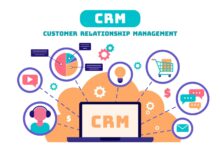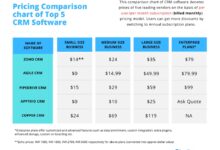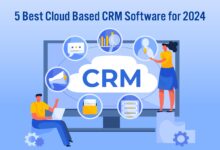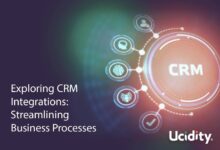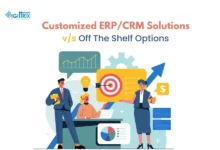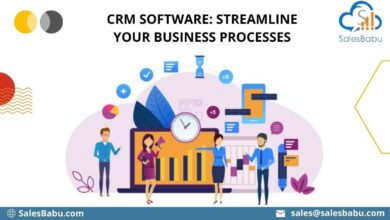Best CRM For Lead Generation: Enhancing Your Sales Strategies
Best CRM for Lead Generation sets the stage for this enthralling narrative, offering readers a glimpse into a story that is rich in detail and brimming with originality from the outset. As we delve into the world of CRM software tailored for lead generation, a plethora of insights and best practices await.
Types of CRM software suitable for lead generation
When it comes to lead generation, choosing the right CRM software is crucial for maximizing your marketing efforts. There are several types of CRM software available, each with its own unique features and capabilities.
1. Traditional CRM
Traditional CRM software focuses on managing customer relationships and interactions. It helps to organize customer data, track interactions, and streamline communication. Examples of popular traditional CRM software include Salesforce, Microsoft Dynamics, and Zoho CRM.
- Key Features:
- Lead tracking and management
- Contact management
- Sales pipeline management
- Integration with Marketing Automation Tools:
- Traditional CRM software can integrate with marketing automation tools like HubSpot, Marketo, and Pardot to streamline lead nurturing and conversion processes.
- Best Practices:
- Regularly update and clean your lead database
- Use automation to streamline lead qualification and follow-up processes
- Segment leads based on behavior and demographics for targeted marketing campaigns
2. Social CRM
Social CRM software integrates social media data and interactions into the CRM system. It helps businesses engage with leads on social platforms and track social interactions. Examples of popular social CRM software include Nimble, Hootsuite, and Sprout Social.
- Key Features:
- Social media monitoring
- Social engagement tools
- Lead scoring based on social interactions
- Integration with Marketing Automation Tools:
- Social CRM software can integrate with marketing automation tools to create targeted social media campaigns and track lead engagement.
- Best Practices:
- Respond promptly to social media interactions to nurture leads
- Use social listening to understand lead preferences and interests
- Track social media metrics to measure the effectiveness of lead generation efforts
Importance of CRM in lead generation
CRM systems play a crucial role in lead generation by helping businesses effectively manage and nurture their leads throughout the sales cycle. By centralizing customer information and interactions, CRM software enables companies to track and analyze leads, personalize communication, and streamline the sales process.
Benefits of using CRM for managing leads
- Improved lead tracking: CRM systems provide a centralized platform to store and track lead information, interactions, and status, ensuring that no potential opportunity falls through the cracks.
- Enhanced lead nurturing: With CRM, businesses can create personalized and targeted communication strategies based on lead behavior and preferences, resulting in higher conversion rates.
- Streamlined sales process: CRM automates repetitive tasks, such as follow-ups and reminders, allowing sales teams to focus on building relationships and closing deals more efficiently.
- Data-driven decisions: By analyzing lead data and performance metrics, CRM software helps businesses identify trends, optimize strategies, and make informed decisions to maximize lead generation efforts.
Real-life examples where CRM improved lead generation efforts
Company XYZ implemented a CRM system and saw a 20% increase in lead conversion rates within the first quarter. By leveraging customer data and insights, they were able to tailor their marketing campaigns and sales pitches to better resonate with their target audience.
After integrating CRM software into their lead management process, Company ABC reduced their lead response time by 50%, resulting in a significant boost in lead engagement and sales opportunities. The automation and organization provided by CRM led to a more efficient and effective lead generation strategy.
Key features to look for in a CRM for lead generation
When selecting a CRM system for lead generation, it is crucial to consider specific features that can enhance your lead management process and ultimately improve lead conversion rates. These key features play a vital role in streamlining lead generation workflows and optimizing your overall sales performance.
Essential Features for Lead Generation
- Lead Scoring: A feature that allows you to prioritize leads based on their level of engagement and likelihood to convert, helping your sales team focus on high-potential leads.
- Lead Nurturing: Enables automated nurturing campaigns to engage leads at different stages of the sales funnel, increasing the chances of conversion over time.
- Integration Capabilities: Seamless integration with marketing automation tools, email platforms, and other systems to ensure a holistic view of lead interactions.
- Customizable Dashboards: Provides real-time insights into lead activities, sales performance, and pipeline status, empowering informed decision-making.
- Workflow Automation: Automates repetitive tasks, such as follow-up emails and lead assignment, saving time and increasing efficiency in lead management.
Impact on Lead Management
These features collectively contribute to efficient lead management by enabling personalized interactions, timely follow-ups, and data-driven decision-making. By leveraging these capabilities, businesses can nurture leads effectively and move them through the sales funnel more efficiently.
CRM Software Examples
CRM software like Salesforce, HubSpot, and Zoho CRM excel in providing these key features for lead generation, offering comprehensive solutions for businesses of all sizes.
Comparison Table
| CRM Software | Lead Scoring | Lead Nurturing | Integration Capabilities | Customizable Dashboards | Workflow Automation |
|---|---|---|---|---|---|
| Salesforce | ✔ | ✔ | ✔ | ✔ | ✔ |
| HubSpot | ✔ | ✔ | ✔ | ✔ | ✔ |
| Zoho CRM | ✔ | ✔ | ✔ | ✔ | ✔ |
Setting up Lead Generation Workflows
To set up lead generation workflows in a CRM system, start by defining your ideal customer profile, creating lead scoring criteria, setting up automated email sequences, and establishing clear handoff processes between marketing and sales teams.
Data Analytics Tools Importance
Data analytics tools within a CRM system are essential for optimizing lead generation strategies by providing valuable insights into lead behavior, campaign performance, and overall ROI. Leveraging data analytics helps businesses make informed decisions and continuously improve their lead generation efforts.
Integrations with other tools for effective lead generation
In today’s digital age, integrating CRM systems with other tools is crucial for maximizing lead generation efforts. By seamlessly connecting various platforms, businesses can streamline their processes and enhance their overall efficiency.
Email Marketing Tools
Integrating CRM with email marketing tools like Mailchimp or HubSpot can help businesses send personalized and targeted emails to leads. This integration ensures that leads receive relevant content at the right time, increasing the chances of conversion.
Social Media Platforms
CRM integration with social media platforms such as Facebook or LinkedIn allows businesses to track leads’ social interactions and engage with them effectively. This integration enables businesses to build stronger relationships with leads and nurture them through the sales funnel.
Marketing Automation Software
By integrating CRM with marketing automation software like Marketo or Pardot, businesses can automate repetitive tasks, such as lead scoring and nurturing. This integration streamlines the lead generation process and ensures that leads are engaged at every touchpoint.
Customer Support Tools
Integrating CRM with customer support tools like Zendesk or Freshdesk enables businesses to provide personalized support to leads. This integration allows businesses to track customer interactions, address their queries promptly, and enhance their overall experience.
Analytics Platforms
CRM integration with analytics platforms like Google Analytics or Tableau provides businesses with valuable insights into lead behavior and preferences. By analyzing this data, businesses can optimize their lead generation strategies and tailor their approach to meet the needs of their leads.
Customization options in CRM software for lead generation
Customization plays a crucial role in CRM software for lead generation as it allows businesses to tailor the tools and features to meet their specific needs and workflows. This level of customization can greatly enhance lead tracking and nurturing, leading to more effective sales processes and better conversion rates.
Improved Lead Tracking and Nurturing
- Custom fields: Businesses can create custom fields in CRM software to capture unique information about leads that are relevant to their business.
- Customized pipelines: CRM software with customizable pipelines enables businesses to create stages that align with their sales process, making it easier to track leads through the sales funnel.
- Personalized communication: With CRM customization, businesses can personalize communication with leads based on their preferences and interactions, improving lead nurturing efforts.
Examples of Customized CRM Solutions
- Salesforce: Offers a highly customizable platform that allows businesses to create custom objects, fields, and workflows to align with their lead generation strategies.
- Zoho CRM: Provides extensive customization options, including custom modules, fields, and layouts, to tailor the CRM system to specific lead management needs.
- HubSpot CRM: Allows for customization of deal stages, properties, and workflows, enabling businesses to design a lead nurturing process that fits their unique requirements.
Automation capabilities in CRM for lead generation
Automation features in CRM play a crucial role in enhancing lead generation processes by streamlining tasks, improving efficiency, and ensuring timely follow-ups. By automating repetitive tasks, CRM software enables sales teams to focus on engaging with leads and closing deals effectively.
Benefits of automation features in CRM
- Automated lead scoring: CRM systems can automatically assign scores to leads based on their interactions and behaviors, helping sales teams prioritize high-quality leads.
- Automated email campaigns: CRM software allows for the creation of automated email campaigns triggered by specific actions or time intervals, nurturing leads and keeping them engaged.
- Automated task assignment: Tasks such as follow-ups, calls, and meetings can be automatically assigned to sales representatives based on predefined rules, ensuring no lead falls through the cracks.
Examples of automated processes in CRM
-
Lead routing: When a new lead enters the CRM system, it can be automatically routed to the appropriate sales representative based on criteria such as territory, industry, or product interest.
-
Lead nurturing workflows: CRM software can automate the process of sending targeted emails, content, and reminders to leads at different stages of the sales funnel, guiding them towards conversion.
Impact of automation on lead generation efficiency
Automation in CRM significantly improves lead generation efficiency by reducing manual tasks, minimizing errors, and ensuring consistent follow-ups. It enables sales teams to focus on building relationships with leads, identifying opportunities, and closing deals, ultimately accelerating the sales cycle and driving revenue growth.
Reporting and analytics tools in CRM for lead generation
When it comes to lead generation, reporting and analytics tools play a crucial role in helping businesses track and optimize their strategies. CRM systems equipped with robust reporting capabilities can provide valuable insights into the effectiveness of lead generation efforts.
Optimizing Lead Generation Strategies with CRM Analytics
- CRM analytics can help businesses identify trends, patterns, and opportunities in lead generation data.
- By analyzing the data collected in the CRM system, businesses can make informed decisions to optimize their lead generation strategies.
- For example, CRM analytics can reveal which marketing campaigns are generating the most qualified leads, allowing businesses to allocate resources effectively.
Key Metrics to Track in CRM for Effective Lead Generation
- Conversion rates: Track the percentage of leads that convert into customers to evaluate the effectiveness of lead generation campaigns.
- Lead source: Monitor where leads are coming from to focus on the most profitable channels.
- Sales pipeline velocity: Measure the speed at which leads move through the sales pipeline to identify bottlenecks and optimize the process.
Setting up Custom Reports in CRM for Lead Generation
- Custom reports in CRM can be tailored to track specific KPIs relevant to lead generation, such as lead quality, conversion rates, and campaign performance.
- Businesses can create dashboards with visual representations of data to quickly assess the effectiveness of their lead generation efforts.
- Custom reports can also help teams identify areas for improvement and make data-driven decisions to enhance lead generation strategies.
Importance of Data Visualization in CRM Reports
- Data visualization tools in CRM reports help businesses interpret complex data sets and identify trends more easily.
- Graphs, charts, and other visual representations can make it simpler to communicate insights and engage stakeholders in the decision-making process.
- Visualizing CRM data can lead to faster and more accurate decision-making, ultimately improving the efficiency of lead generation efforts.
Comparing CRM Platforms for Reporting Capabilities
- When choosing a CRM system for lead generation, businesses should evaluate the reporting and analytics features offered by different platforms.
- Compare the ability to customize reports, access real-time data, and integrate with other tools to find the CRM system that best suits your lead generation needs.
- Consider factors like ease of use, scalability, and the depth of reporting functionality when selecting a CRM platform for optimizing lead generation strategies.
User-friendly interface and ease of use in CRM for lead generation
The user-friendly interface of a CRM system plays a crucial role in the lead generation process. It enables the team to navigate through the software effortlessly, resulting in increased productivity and efficiency.
Importance of a user-friendly CRM interface for lead generation
A user-friendly CRM interface simplifies the lead generation process by providing a seamless experience for the team. It allows users to easily access and update lead information, track interactions, and manage tasks without any unnecessary complications.
How ease of use can impact lead generation team productivity
When a CRM system has an intuitive interface, the lead generation team can focus more on their core tasks rather than struggling with complex software. This leads to improved productivity, faster response times, and better overall performance in converting leads into customers.
Examples of CRM systems with intuitive interfaces for lead generation
– HubSpot CRM: Known for its user-friendly interface and easy navigation, HubSpot CRM offers a simple yet powerful platform for lead generation.
– Salesforce CRM: With customizable dashboards and a clean layout, Salesforce CRM provides a user-friendly experience for managing leads effectively.
– Zoho CRM: Zoho CRM offers a visually appealing interface with drag-and-drop customization options, making it easy for the team to work on lead generation activities.
Mobile compatibility and accessibility in CRM for lead generation
Mobile compatibility in CRM for lead generation is crucial in today’s fast-paced business environment. With the increasing reliance on mobile devices, having a CRM system that is accessible on smartphones and tablets allows users to manage leads effectively, even when they are on-the-go.
Significance of mobile compatibility for lead generation CRM
Mobile compatibility ensures that sales teams can access important lead information anytime, anywhere, leading to faster response times and increased productivity. This accessibility also enables real-time updates and collaboration among team members, ultimately improving lead management efficiency.
Examples of CRM software with robust mobile features for lead generation
– Salesforce CRM offers a mobile app that provides full access to lead data, communication history, and task management.
– Zoho CRM’s mobile app allows users to track leads, update information, and communicate with prospects seamlessly from their mobile devices.
Comparison of user interface between mobile CRM applications and desktop versions
Mobile CRM applications are designed to be more user-friendly, with intuitive interfaces optimized for smaller screens. Desktop versions may offer more detailed features, but mobile apps prioritize essential functions for on-the-go lead management.
Best practices for designing a mobile-friendly CRM interface
– Simplify navigation and prioritize key functions for quick access.
– Optimize layouts for smaller screens and touch interactions.
– Ensure seamless synchronization between mobile and desktop versions for consistent data updates.
Impact of real-time data synchronization on mobile CRM effectiveness
Real-time data synchronization ensures that all team members have access to the latest lead information, reducing errors and improving collaboration. This feature enhances decision-making and responsiveness in lead management processes.
Role of push notifications in improving lead engagement through mobile CRM
Push notifications alert users about important lead updates, tasks, or reminders, keeping them informed and engaged even when they are not actively using the CRM app. This feature enhances communication and helps prioritize lead follow-ups for better conversion rates.
Scalability options in CRM software for lead generation
Scalability in CRM software refers to the ability of the system to grow and adapt to the changing needs of a business, particularly in lead generation processes.
Comparison between scalable and non-scalable CRM solutions for lead generation
- Scalable CRM solutions offer flexibility and can handle increasing data and lead volumes efficiently.
- Non-scalable CRM systems may struggle to cope with growth, leading to performance issues and hindered lead generation efforts.
- Scalable CRM software allows for seamless integration of new features and functionalities as the business expands.
- Non-scalable CRM solutions may require a complete overhaul or migration to a new system when the current one becomes inadequate.
Challenges of non-scalable CRM systems for lead generation
- Slow performance due to data overload.
- Lack of customization options to meet evolving business needs.
- Inability to support increased user numbers or lead generation activities.
- Risk of data loss or inconsistencies when trying to scale up operations.
Strategies for implementing scalable CRM software in lead generation processes
- Conduct a thorough assessment of current and future business requirements.
- Choose a CRM solution that offers modular scalability options based on business needs.
- Regularly monitor system performance and scalability to ensure it aligns with business growth.
- Provide adequate training to users to maximize the benefits of scalable CRM features.
Assessing scalability features of different CRM platforms for lead generation
| Feature | Description |
|---|---|
| Flexible data storage | Ability to store and manage large volumes of lead data efficiently. |
| Customization options | Allowing businesses to tailor the CRM system to their specific lead generation processes. |
| Scalable pricing plans | Offering different tiers or packages that can accommodate varying business sizes and needs. |
| Integration capabilities | Seamless integration with other tools and systems for enhanced lead generation functionalities. |
Customer support and training provided by CRM vendors for lead generation
Customer support and training play a crucial role in the successful implementation of CRM systems for lead generation. It is essential for CRM vendors to provide reliable support and comprehensive training to ensure that businesses can maximize the potential of their CRM software.
Role of customer support in successful lead generation CRM implementation
Customer support is vital for addressing any technical issues or questions that may arise during the use of CRM software. Prompt and effective customer support can help businesses overcome challenges and ensure that their lead generation activities run smoothly.
Benefits of training programs offered by CRM vendors for lead generation teams
Training programs provided by CRM vendors help lead generation teams understand how to use the CRM software effectively. By offering training sessions, vendors can ensure that users are equipped with the necessary skills to optimize the CRM system for lead generation.
Examples of effective customer support and training from CRM vendors in lead generation
Some CRM vendors offer 24/7 customer support through various channels such as live chat, email, or phone. Additionally, they provide comprehensive training materials, video tutorials, and webinars to help users get the most out of their CRM software for lead generation.
Pricing models and affordability of CRM software for lead generation
When considering CRM software for lead generation, it is essential to evaluate the pricing models and affordability to find the best solution that fits your budget and business needs.
Comparison of pricing models
- Subscription-based: This model involves paying a recurring fee at regular intervals to access the CRM software. It is a popular choice for businesses looking for flexibility and scalability.
- Pay-per-user: In this model, the cost is based on the number of users accessing the CRM software. It can be a cost-effective option for small businesses with a limited number of users.
- One-time purchase: Some CRM software offers a one-time purchase option, where you pay a lump sum upfront to own the software permanently. This can be suitable for businesses with stable needs and budget constraints.
Affordability for businesses focusing on lead generation
- Consider the size of your company and the features you require when evaluating the affordability of CRM solutions for lead generation.
- Smaller businesses may opt for cost-effective CRM options that offer essential lead generation features like lead scoring, pipeline management, and integration capabilities.
- Ensure to assess the scalability of CRM software to accommodate your business growth without incurring significant additional costs.
Examples of cost-effective CRM options
| CRM Software | Pricing Plans | Features | Scalability |
|---|---|---|---|
| HubSpot CRM | Freemium model with paid plans | Lead scoring, pipeline management, integrations | Scalable for growing businesses |
| Zoho CRM | Various subscription plans | Lead management, workflow automation, analytics | Flexible scalability options |
Tips for negotiating pricing
- Discuss your specific needs with CRM vendors to explore customized pricing options.
- Consider annual subscriptions or long-term commitments for potential discounts.
- Look for special promotions or discounts during certain times of the year.
Security features in CRM software for lead generation
Security features play a crucial role in CRM systems for lead generation, as they help safeguard sensitive lead data from potential threats and breaches.
Importance of security features in CRM systems
- Robust security measures are essential to protect confidential information such as contact details, interactions, and potential leads.
- Advanced encryption and authentication protocols ensure that only authorized users can access and modify lead data.
- Compliance with data protection regulations like GDPR is easier with strong security features in place.
Examples of CRM platforms with advanced security features
- Salesforce: Offers role-based access control, encryption at rest and in transit, and regular security audits to prevent unauthorized access.
- HubSpot CRM: Provides two-factor authentication, IP whitelisting, and data encryption to protect lead information from cyber threats.
- Zoho CRM: Implements SSL encryption, firewall protection, and automated backups to ensure data security and integrity.
Case studies of successful lead generation using CRM software
In the following section, we will delve into various case studies that showcase successful lead generation campaigns powered by CRM software. These real-life examples will provide valuable insights into the strategies, tools, and impact of CRM on lead generation efforts.
Case Study 1: Company A
- Company A implemented CRM software to streamline lead management processes, resulting in a 20% increase in lead conversion rates.
- The CRM system allowed for personalized lead nurturing, leading to a higher engagement level and accelerated sales cycles.
- Integration with email marketing tools enabled targeted campaigns based on lead behavior and interests.
Case Study 2: Company B
- Company B utilized CRM software to centralize lead data and improve lead scoring accuracy, leading to a 15% growth in qualified leads.
- Automated workflows in the CRM system reduced manual tasks and increased efficiency in follow-up communication with leads.
- Advanced reporting and analytics tools provided valuable insights into lead behavior and campaign performance, optimizing marketing strategies.
Comparison of CRM Software in Case Studies
| CRM Software | Key Features | Impact on Sales Pipeline |
|---|---|---|
| CRM A | Personalized lead nurturing, integration with email marketing | 20% increase in lead conversion rates |
| CRM B | Centralized lead data, automated workflows, advanced reporting | 15% growth in qualified leads |
ROI Analysis
The implementation of CRM software in lead generation campaigns resulted in a significant return on investment for both Company A and Company B. The enhanced efficiency, targeted marketing, and improved lead management led to tangible business growth and increased revenue.
Trends and innovations in CRM for lead generation
In today’s rapidly evolving business landscape, staying ahead of the curve is crucial for successful lead generation. Let’s explore the trends and innovations shaping CRM technology for lead generation.
Emerging Trends in CRM Technology
- AI-Powered Insights: CRM systems are incorporating artificial intelligence algorithms to analyze customer data and provide valuable insights for lead generation strategies.
- Omni-channel Integration: The integration of multiple communication channels within CRM software allows for a seamless lead generation process across various platforms.
- Predictive Analytics: CRM tools are leveraging predictive analytics to forecast customer behavior and optimize lead generation campaigns.
Innovative Features in CRM Software
- Chatbots for Lead Qualification: CRM platforms now offer chatbot functionalities to qualify leads in real-time, improving efficiency and response times.
- Personalization at Scale: Advanced CRM systems enable personalized marketing campaigns at scale, enhancing lead engagement and conversion rates.
- Mobile CRM Applications: The development of mobile CRM applications allows sales teams to access lead information on-the-go, increasing productivity and agility.
Future Developments in CRM
- Integration with IoT Devices: The integration of CRM systems with Internet of Things (IoT) devices will provide real-time customer data for more targeted lead generation strategies.
- Enhanced Data Security Measures: Future CRM software will prioritize data security with advanced encryption and compliance features to protect sensitive lead information.
- Augmented Reality in CRM: The incorporation of augmented reality features in CRM tools will revolutionize lead generation by offering immersive and interactive experiences for potential customers.
Comparing Traditional vs. CRM-based Lead Generation
- Traditional methods rely on manual processes and lack real-time insights, while CRM-based approaches offer automation, analytics, and personalized engagement for more effective lead generation.
- CRM systems provide a centralized database for lead information, streamlining communication and tracking interactions to nurture leads throughout the sales funnel.
- With CRM software, businesses can measure the ROI of lead generation campaigns, optimize strategies based on data-driven insights, and improve conversion rates over time.
Summary
In conclusion, the journey through the realms of CRM for lead generation unveils a treasure trove of tools, strategies, and success stories to elevate your sales endeavors. With the right CRM system in place, the path to converting leads into loyal customers becomes clearer and more achievable.
